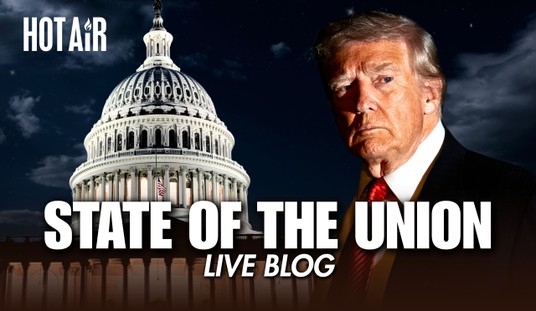Is that so?
It’s true that he’s never excluded the possibility of a lab leak, but how could he? Barring the discovery of SARS-CoV-2 in an animal host or some very uncharacteristic transparency by China about its labs, there’s no way to rule out a lab accident.
He sure did sound skeptical when he discussed it with National Geographic last year, though:
“If you look at the evolution of the virus in bats and what’s out there now, [the scientific evidence] is very, very strongly leaning toward this could not have been artificially or deliberately manipulated … Everything about the stepwise evolution over time strongly indicates that [this virus] evolved in nature and then jumped species,” Fauci says. Based on the scientific evidence, he also doesn’t entertain an alternate theory—that someone found the coronavirus in the wild, brought it to a lab, and then it accidentally escaped.
Compare that to his tone on May 11 of this year, when he was asked whether he’s still confident that the virus developed naturally:
“I am not convinced about that, I think we should continue to investigate what went on in China until we continue to find out to the best of our ability what happened,” Fauci said. “Certainly, the people who investigated it say it likely was the emergence from an animal reservoir that then infected individuals, but it could have been something else, and we need to find that out. So, you know, that’s the reason why I said I’m perfectly in favor of any investigation that looks into the origin of the virus.”
His May 11 comments sound like someone who’s keeping an open mind. His comments last year … do not. Yet here he is today glossing over the evolution in his position:
Dr. Fauci on COVID lab leak theory: “We’ve always said ‘keep an open mind and continue to look.’ So I think it’s a bit of a distortion to say that we deliberately suppressed that.” pic.twitter.com/20VuUBHt2Y
— The Recount (@therecount) June 16, 2021
I don’t understand why his thinking changed and Fauci seems disinclined to explain, waving it off with the false assertion that he’s been consistent. Maybe the truth is that his faith in the zoonotic-origin theory diminished with each passing day that an animal host wasn’t found. But it sometimes takes years for scientists to identify the animal source of a new virus, as Fauci knows. A year passing without evidence shouldn’t shake his faith that the virus arose naturally.
My guess is that he was guilty of groupthink to some degree and he knows it and is rewriting the history of his previous skepticism now that that groupthink has been shattered by analyses like Nicholas Wade’s and the willingness of dissenting scientists to finally speak up. Groupthink is also a powerful driver (really, the main driver) of opinion on the lab-leak theory across the general population, as we were reminded Monday night by an unlikely source. Peter Spiliakos wrote today about the striking difference between Jon Stewart’s credulity about a possible lab accident and Stephen Colbert’s palpable discomfort with the idea. Why the difference, given the similarity in their politics? It’s because Colbert operates in a culture where groupthink matters enormously while Stewart, having left that culture, doesn’t.
Colbert spends the entire segment desperately disassociating himself from Stewart. At one point he cracks that Stewart must be working for Republican Senator Ron Johnson. The message is simple: It doesn’t matter if the stuff you are saying is funny. It doesn’t even matter if the stuff you are saying is true. What matters is you are putting me and my show on the wrong side and that’s a problem.
That’s because Colbert is terrified of his Very Online fanbase. In the wider America, the vast majority either believe in the lab-leak theory or are agnostic on the subject. But for the Very Online Left, the lab-leak theory isn’t about true or false. It’s about in-group vs. out-group, and anyone who volunteers that the lab-leak theory might be true is part of the out-group.
Fauci’s a scientist and has based his assessment of the virus’s origins on more than just groupthink, of course, but groupthink may have mattered — potentially a lot — to the certainty of that assessment. Read this new WaPo story about the Trump administration’s search for a smoking gun, which they never found, to prove that the virus really did originate in the Wuhan lab. The most important bit comes early in describing how Fauci and other scientists analyzing the virus’s genome grew more confident that its distinguishing features, like the “furin cleavage site,” could have evolved naturally. (“An expert trying to design an even more effective coronavirus would never have come up with this design.”) But there’s groupthink here too:
Many more scientists would come not only to discount the “lab leak” theory but dismiss it as the unfounded projection of President Donald Trump, who in the pandemic’s early days publicly claimed the virus may have emerged from a lab in Wuhan, China, where the first known cases of the novel coronavirus were found…
Trump and Pompeo may have done more to slow the origins search than assist it.
“This issue became radioactive” after their public remarks, said one former official who believed the lab was probably the source of the outbreak.
That’s not to say that scientists let Trump drive their opinion of how the virus arose. But some who quietly agreed with him about the possibility of a lab accident might have let him influence their willingness to voice their opinion, whether because they didn’t want to associate themselves with someone who once suggested cleansing the body of COVID with some sort of internal light or because they didn’t want to hand Trump a political “win.” Now that he’s gone, it’s suddenly safer for them to speak up. And so they have, forcing Fauci to pivot accordingly.









Join the conversation as a VIP Member